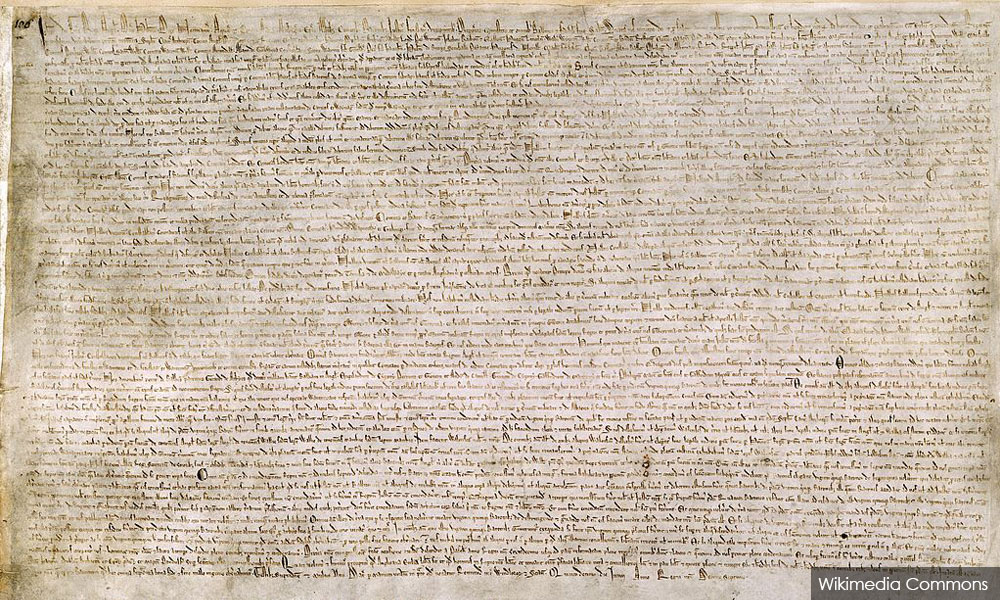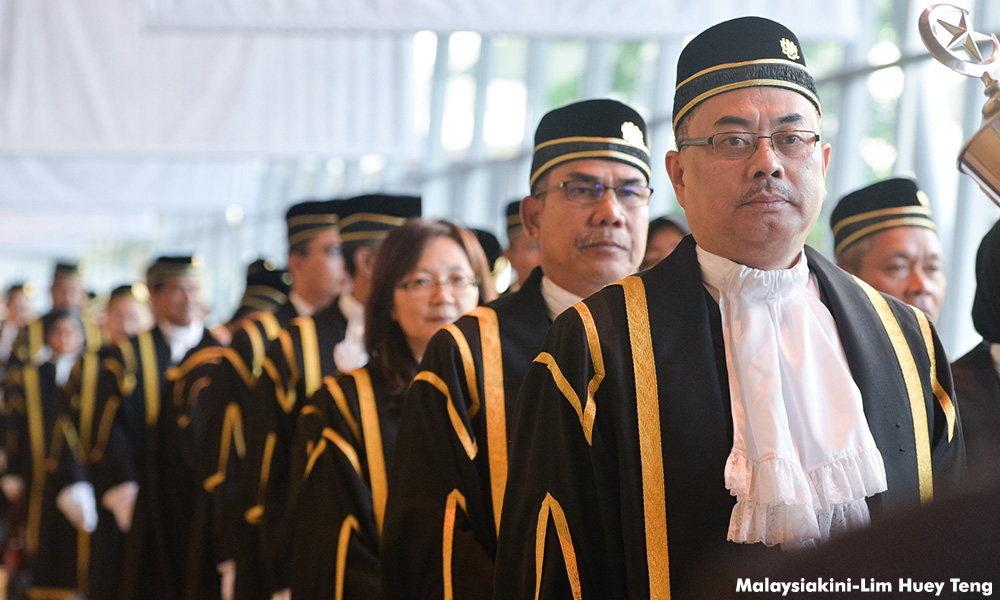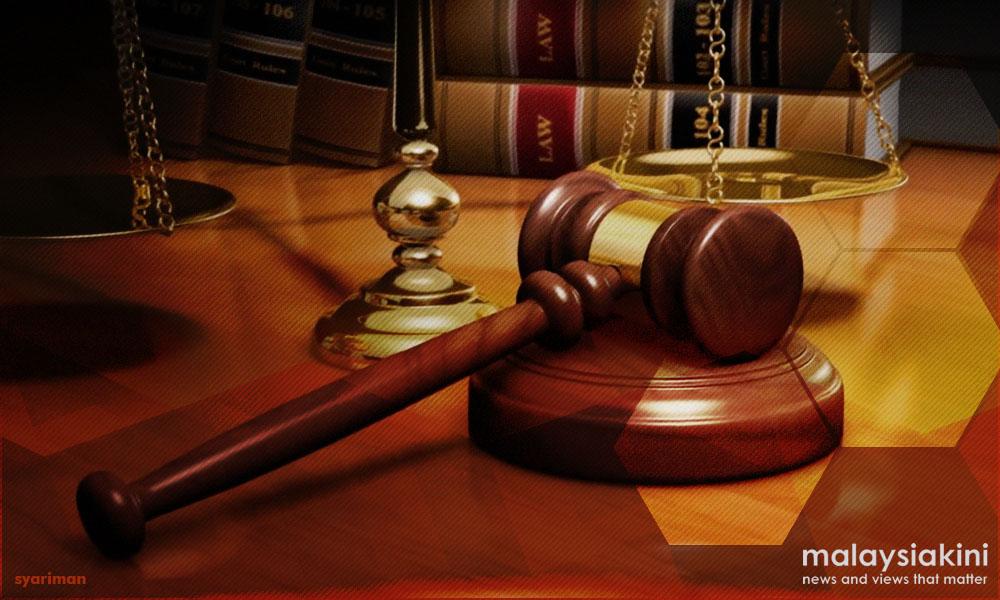COMMENT | The electoral tsunami is over. It is now time to rebuild institutions of the state, the foremost of which is the judiciary.
Now that we speak of the judiciary, the first thought that springs to mind is the concept of the rule of law. That originated centuries ago. The English Magna Carta, signed in 1215, was a turning point for the development of the rule of law. Two principles are crucial to an understanding of this concept:
- "No free man shall be arrested, or imprisoned, or disseised (property taken), or outlawed, or exiled, or in any way destroyed, nor will we go against him, nor will we send against him, save by the lawful judgement of his peers or by the law of the land.”
- "To no one will we sell, to no one delay right or justice".
King John, the reigning monarch, was a reluctant signatory. He found it rather inconvenient to his arbitrary rule. However, subsequent monarchs were called upon to solemnly confirm it on no less than 37 different occasions.
That was 803 years ago. Democracies the world over have cherished it ever since. It was the greatest gift to humanity.
An English judge, Lord Coke, wrote a treatise on it in 1779. Young colonists and future presidents of the US, such as Thomas Jefferson and John Adams, absorbed Coke's Interpretation of the Magna Carta and the English common law (Coke's "Second Institute").

The phrase "due process of law" appeared in 1354 in a statutory version in the reign of Edward III.
It declared: "That no man of what estate or condition that he be, shall be put out of land or renement, nor taken, nor imprisoned, nor deinherited, nor put to death, without being brought to answer by due process of the law.”
Now, that was 665 years ago. These documents would, afterwards, form the backbone for all nations of the Commonwealth. And so too Malaysian law, which follows the legal system of the UK.
The question is whether the judiciary has been equal to these principles of the rule of law. Often, many a lawyer, and many an opposition politician has had cause to wonder if judges had regressed to the ways before the Magna Carta.
Is the judiciary more efficient?
Some years ago, James Foong embarked on a re-engineering of judicial efficiency. Zaki Azmi, the then-chief justice, supported him. Yet, after all that, is our judiciary the more efficient? It certainly is. It became a machine well-oiled. It hums with quiet efficiency.
Did the judiciary become more effective? That is not a difficult question to answer. The question merits a series of other questions: Can our judges compare to those in the leading nations of the Commonwealth? What are their powers of research? How are their powers of reasoning?
If the answers to these questions are in the negative, then something has to be done. You can overhaul the car, but what if the driver has no regard for traffic rules?
So how do we reform the judiciary? First, it is time to assay our judges. To "assay" is to "evaluate, assess, appraise, scrutinise, probe" etc.
The quality of our judges has never been tested against an objective standard. In the US confirmation hearings are held. In the UK there are public procedures put into place – judges are required to sit for qualifying exams. In both these procedures, the ability, experience and integrity of the judge are held up for public examination. Not so in Malaysia.
Our collective experience has been that our judiciary"s judgements, instead of being quoted with approval by other jurisdictions, are embarrassingly cast down. We have no international presence. What brought us to this pass? To answer that question, we now turn to "causes and remedies."
Causes and remedies
When Dr Mahathir Mohamad became the fourth prime minister on July 16, 1981, he famously said, "I will drive the fear of God into the corrupt". It has been more than three decades since. How will the current regime treat its own ministers and civil servants? What message will this send to the judiciary?
The causes of the downfall of our judiciary – any judiciary – is not difficult to fathom. Such a fall is firstly attributable to (what has been) an imperious, overbearing, intolerant, and a high-handed executive (read, government). It was one whose ministers brooked no contrary thought. Those in power had no respect for the law, and they did not care to practise the rule of law.
Examples of these abound. In the previous regime, ministers, civil servants and their hangers-on were uncrowned kings. They were a law unto themselves. They were unassailable. They sauntered the corridors of power without concern and impunity. The alarming growth of their arbitrary power, consequently, drove any thought of rule of law, or free speech, underground.
The tendency of judges to favour the government has been growing unchecked. They have suffered, until a couple of days ago, under the yoke of their political masters. And so we have been inflicted with judges whose attitude is, 'don"t rock the boat'. This class of 'don't rock the boat', persons are those who are best seen in sensitive government cases or in election petitions.

Since Pakatan Harapan has been the victim of injustice, it should be well aware of this. Yet, does the Harapan government expect our judges to swing over and satisfy them? One hopes not. Harapan, on whom rides the hopes of a citizenry long denied their civil rights, surely, is better than that.
So, the government needs to establish a written standard of integrity. It must be enthusiastic, and honourable in prosecuting any public officer, ministers, and civil servant – immediately and without delay. This will demonstrate to the nation, especially to the judiciary, the weight of Thomas Fuller's words, uttered more than 300 years ago: "Be ye ever so high, the law is above you."
The fawning and toadying
The next and related cause is corruption. By "corruption" is not meant the mere receipt of some financial advantage. It is not the promise of future promotion or the bestowal of a royal title. Not even intellectual dishonesty. It is more subtle. Insidiously and insensibly gaining ground over the decades, it is more difficult to detect or deter and therefore the eviler.
It is the willful closing of one's eyes to the spirit of the law. That is the highest form of corruption. When one murders the spirit of the law and claims to uphold the mere letter of the law, one becomes the more corrupt.
It is not rule "of" law. It became, under the previous regime, rule "by" law. Big difference.
Persons who fall into this group must be removed and dealt with, because, as Dale Carpenter says:
"… if citizens cannot trust that laws will be enforced in an even-handed and honest fashion, they cannot be said to live under the rule of law. Instead, they live under the rule of men corrupted by the law."
And so the innocent are convicted, and guilty are released. Look around you. There are many examples, large and small.
The third is the personal ambition of some judges: "…If you support us, you will be promoted. If you stand in the way, off to the deep freezer you go!" That was the message sent out by the earlier regime. And so there grew a culture of fawning and toadying. When the malaise grew into a culture of servility, the rot began.
The next concerns nepotism. A judge who is unable to rise by merit but has ascended by his relatives or friends should be run out of the system.
Then, the sloth and the heedless: there are judges who are clever, but lazy. And then there those who are lazy and refuse to do the right thing. And finally, there are judges who are not so clever, who feel the judiciary is their last refuge, before being pastured out for retirement.
Next, we move on to more practical matters. Take the choosing judges from a limited pool. That is the most important. Most of the current judiciary is of a particular make-up. This system has a history to it. the majority of the judges in the judiciary come from the Attorney-General's Chambers. There are some great lawyers there, but not quite enough to satisfy the wide and deep skills the courts require. This practice needs to be reconsidered.
Highly-qualified members of the Bar – those who have exhibited a high level of skill, a love of the law (one cannot protect, implement or enhance what one does not adore), immaculate character and unblemished record – should be invited to join the bench. Especially at the level of the Federal Court.
Senior members of the Bar would bring to the judiciary a lifetime's experience of independent thinking, fearlessness when confronted by authority, and a deep knowledge of the law. Yet, such invitations have been few and far between, and when granted, only to ageing talent, and that too to the lowest rung, at the high court level. The way members of the judiciary are currently chosen is to ignore completely the judicial talent at the Bar.
But lawyers are usually reluctant to take up the offer. There are two reasons for this, the first being the fear that one will become 'trapped' in the system;
The second is that judges are paid a parsimonious sum. A lawyer earning RM50,000 a month will not give up practice to earn RM26,000 (a judge's remuneration), no matter how much prestige a judgeship brings.

So for many decades, our judges have not been treated charitably. No one wants to be a poor judge (pun intended). Judges should be paid well. Look at Singapore: about S$1 million per year in all (the annual pensionable salary of RM2.99 million). We do not attract the best and brightest to the judiciary. They stay away or do "national service" in the evening of their lives.
Next is a system that has been overwhelmed. That has not helped. Judges are not given the support they need. Not any help - but with the help of highly-qualified researchers, editors and writers. Most of our judges are good people. They are uncommonly industrious. For those who do not understand, I will demonstrate - every court has, say, about 10 hearings a day (in some cases, some have as many as 20). Lawyers from both sides of the case are required to file written arguments.
On a daily basis, the judge has to read some 20 main submissions and 10 replies. Each would be about 20 pages long. Every single day, a judge has to read not only the cause papers but also 200 pages of arguments. He or she has to analyse case law. These run into tens of pages. That is at least about 600 pages. Additionally, at the end of an exhausting day, he or she has to write a judgement from 10 to 30 pages long. It cannot be done. No one can do it. I defy any member of the Bar to try it.
So judges don't usually read. Who can blame them? What if a highly qualified research assistant could help the judge do that? Some countries employ a judicial research assistant, such a researcher helps the judge with difficult points of law, carries out research and writes the first draft of any judgement. They are highly qualified and, unlike our registrars and deputy registrars — who are tasked and burdened with many duties — do only research.
Again, a major complaint of the Bar has always been that our judges lack deep knowledge of commercial law. Commerce is the lifeline of every nation. Those who administer the law should know it well.
Rise phoenix-like
Then there is the age factor - the retirement age of judges should be extended. It is now 66. Mahathir is 92. His legal advisor is at least 75. Are they not brilliant? So why can't judges be allowed to give fruitful service to the nation until the age of 75? We could allow judges the option of retiring at 66 or extending their term by increments of three years until they are 75?
This might create a glut of pro-government judges. To avoid this, all-around consultation and the consensus of the Bar, AGC and Parliament may be sought. Other countries allow it. Why not ours?
Next, is a lack of any kind of formal training. Baroness Brenda Hale, a UK supreme court judge, recounts in a 2010 paper delivered on the first anniversary of the UK supreme court, that a system is in place on how judges of the apex court explain, declare and develop the law.
Our judges do not – alas – write, or reason, like judges in the more developed nations. They write in a formulaic way, which in itself, is no cause for complaint. The product of most (not all!) judicial exertions is nothing more than reams of judgement, without any hint of intellectual originality or creativity.
They repeat what other judges have said, without proper scrutiny. They parrot and pile up quotations from previous judgements. There are judges who write 20 pages of "who argued what" and then confine their decision to two pages of "I agree with the appellant because …," and write three lines in conclusion. This certainly will not do. They need to go through regular training regime. A judicial institution does exist but has not addressed the issues in this way.

And so, how does one choose a judge? Is it a secret process only confined to a few in power? What factors should be taken into account? For that, we turn to "assaying judges". How should the nation "assay" the qualities of a judge? To "assay" means to "evaluate, assess, analyse, test, appraise, etc.
Those who are made judges should possess a deep, working knowledge across a broad spectrum of different areas of law, and possess qualities of
“Unquestioned loyalty to the constitution, of selfless devotion to the law, of a well-trained mind, of recognised ability and mature experience, and they should be faithful, sincere, experienced, capable and competent.
“Due regard must be paid to their actual capacity and present attainments, and only those who are best qualified for a judgeship, be they men or women, and irrespective of social standing, should be elected to the extremely responsible position of a member of the judiciary,” a great man once said.
If the selection is based only on these impartial factors (as it should be), why would any reasonable person ignore a vibrant, competent Bar, as the previous regime has done?
All these troubling issues must be extracted out of the judiciary. Spring cleaning is overdue. The judiciary has many good, hard-working, professional judges. They are largely ignored and languish in the lower levels until their bitter retirement. And embittered they remain. We must not lose such committed talent. That has been the mistake of the previous regime – remove anyone who disagrees.
Only judges who exhibit a strong command of the language, the ability to grasp, wrestle, reason, and tame the difficult concepts of the law — and write with lucidity and simplicity – they are the ones who should be allowed to sit as judges in the high courts, courts of appeal and the federal courts.
We should invite to the bench, or promote only those who exhibit these qualities. Those who have shown an ability to argue their grounds of judgment, quite independently of counsel"s argument, instead of merely copying it. Those who apply legal principles carefully and correctly. Those who develop the law; those who throw light on grey areas expatiate upon and smooth untrodden ground.
Importantly, there should be complete executive non-interference. Bertrand Russell, the English mathematician and philosopher said, “…the government can easily exist without laws, but the law cannot exist without government.”
Thus the current government should allow our judiciary the time and space to assume the lofty heights it held in times of old. Do not complain that our judges are one-sided. Give them space. Give them freedom. Tell them, “If you do your job impartially, you will be promoted. And quickly”. Then cut them loose. And see what wonders they can do.
Let them, once more, gain the hallowed grounds they used to tread only decades ago.
This will allow our judges to emerge from the shadows of fear. This new-found freedom will allow them to uphold the rule of law, to preserve the sanctity of the Federal Constitution. They should be enabled to recall their oath of office.
Will the judiciary, phoenix-like, rise to the challenge? Does it want to?
GK GANESAN KASINATHAN is an advocate and solicitor.
The views expressed here are those of the author/contributor and do not necessarily represent the views of Malaysiakini.

